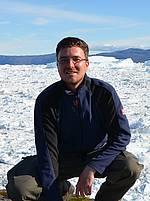ProjektMultiTroph – Trophische Interaktionen-, Baumdiversitäts- und Bodenerosionseffekte auf die…
Grunddaten
Akronym:
MultiTroph
Titel:
Trophische Interaktionen-, Baumdiversitäts- und Bodenerosionseffekte auf die Boden-Pflanzenstöchiometrie
Laufzeit:
01.10.2022 bis 30.09.2026
Abstract / Kurz- beschreibung:
Forschungskontext: Nährstoffe sind eine essenzielle Verbindung zwischen trophischen Ebenen und innerhalb von Netzwerken. Baumdiversität kann die Nährstoffkreisläufe über trophische Ebenen hinweg beeinflussen. Allerdings beschränken die jeder Ebene inhärente Komplexität und die Interaktionen zwischen trophischen Ebenen unser Verständnis der Baumdiversitätseffekte auf die Nährstoffkreisläufe und damit die Vorhersage der Reaktion von Waldökosystemen auf den Verlust der Artenvielfalt.
Hypothesen: In diesem Projekt planen wir, die Umverteilung von Nährstoffen durch Erosion und die Nährstoff-Interaktion zwischen Bodenmikroorganismen (Konsumenten) und Pflanzen (Primärproduzenten) entlang des BEF-China Baumdiversitätsgradienten zu untersuchen. Unsere Hypothesen sind: (1) Die Bodenerosion verteilt die Nährstoffe entlang von Hängen um und verändert damit die Nährstoffverfügbarkeit im Boden für Mikroorganismen und Bäume. Erodierte Bereiche weisen eine geringere Nährstoffverfügbarkeit auf und forcieren Recycling-Prozesse, während Depositionsbereiche durch Nährstoff-Overyielding dominiert werden. (2) Mikroorganismen im Boden unter diversen Baummischungen verwerten Nährstoffe wieder und nehmen diese effizienter auf („Nährstoff-Overyielding“), wobei das „Nährstoff-Overyielding“ dominiert. (3) Bäume nehmen ebenfalls die Nährstoffe effizienter auf und verwerten sie wieder. Dabei ist das Recycling wichtiger. Folglich unterscheidet sich je nach trophischer Ebene der Beitrag der zwei Prozesse, wodurch die stöchiometrische Reaktion der trophischen Ebenen auf Baumdiversität divergiert.
Methoden: Wir werden einen stöchiometrischen Ansatz nutzen und trophische Interaktionen in Bezug auf die Nährstoffkreisläufe untersuchen. Wir werden moderne Messrinnen-basierte Sedimentflussmessungen, Nährstoffanalysen im Boden, in Pflanzen und in Tieren sowie die Bestimmung der Sauerstoffisotopensignaturen in Phosphat kombinieren. Das Projekt wird eine komplette Bodendatenerhebung (alle wichtigen Nährstoffe und Bodeneigenschaften) beinhalten, die allen Teilprojekten der Forschergruppe zur Verfügung stehen wird.
Innovation: Wir werden das einzigartige Langzeitmonitoring von Bodeneigenschaften fortführen. Wir werden den Einfluss der Baumdiversität auf den lateralen Stofftransport durch Erosion untersuchen, welche die Umverteilung von Nährstoffen und anderen oberirdischen Komponenten wie Streu, Pollen, Pflanzenreste und Organismen beinhaltet und in der Biodiversitätsforschung wenig berücksichtigt wurde. Wir widmen uns der Frage, ob höhere trophische Ebenen, wie z.B. Bodenmikroorganismen, welche die Streu der Bäume als Nahrung nutzen, in derselben Weise auf Baumdiversität reagieren wie niedrige Trophiestufen.
WissenschaftlerInnen: Das Projekt wird durch Yvonne Oelmann (PI), Steffen Seitz und Thomas Scholten (Co-PIs) (Universität Tübingen) in Kollaboration mit unseren chinesischen Partnern Yu Liang (Chinese Academy of Sciences) und Naili Zhang (Beijing Forestry University) durchgeführt.
Hypothesen: In diesem Projekt planen wir, die Umverteilung von Nährstoffen durch Erosion und die Nährstoff-Interaktion zwischen Bodenmikroorganismen (Konsumenten) und Pflanzen (Primärproduzenten) entlang des BEF-China Baumdiversitätsgradienten zu untersuchen. Unsere Hypothesen sind: (1) Die Bodenerosion verteilt die Nährstoffe entlang von Hängen um und verändert damit die Nährstoffverfügbarkeit im Boden für Mikroorganismen und Bäume. Erodierte Bereiche weisen eine geringere Nährstoffverfügbarkeit auf und forcieren Recycling-Prozesse, während Depositionsbereiche durch Nährstoff-Overyielding dominiert werden. (2) Mikroorganismen im Boden unter diversen Baummischungen verwerten Nährstoffe wieder und nehmen diese effizienter auf („Nährstoff-Overyielding“), wobei das „Nährstoff-Overyielding“ dominiert. (3) Bäume nehmen ebenfalls die Nährstoffe effizienter auf und verwerten sie wieder. Dabei ist das Recycling wichtiger. Folglich unterscheidet sich je nach trophischer Ebene der Beitrag der zwei Prozesse, wodurch die stöchiometrische Reaktion der trophischen Ebenen auf Baumdiversität divergiert.
Methoden: Wir werden einen stöchiometrischen Ansatz nutzen und trophische Interaktionen in Bezug auf die Nährstoffkreisläufe untersuchen. Wir werden moderne Messrinnen-basierte Sedimentflussmessungen, Nährstoffanalysen im Boden, in Pflanzen und in Tieren sowie die Bestimmung der Sauerstoffisotopensignaturen in Phosphat kombinieren. Das Projekt wird eine komplette Bodendatenerhebung (alle wichtigen Nährstoffe und Bodeneigenschaften) beinhalten, die allen Teilprojekten der Forschergruppe zur Verfügung stehen wird.
Innovation: Wir werden das einzigartige Langzeitmonitoring von Bodeneigenschaften fortführen. Wir werden den Einfluss der Baumdiversität auf den lateralen Stofftransport durch Erosion untersuchen, welche die Umverteilung von Nährstoffen und anderen oberirdischen Komponenten wie Streu, Pollen, Pflanzenreste und Organismen beinhaltet und in der Biodiversitätsforschung wenig berücksichtigt wurde. Wir widmen uns der Frage, ob höhere trophische Ebenen, wie z.B. Bodenmikroorganismen, welche die Streu der Bäume als Nahrung nutzen, in derselben Weise auf Baumdiversität reagieren wie niedrige Trophiestufen.
WissenschaftlerInnen: Das Projekt wird durch Yvonne Oelmann (PI), Steffen Seitz und Thomas Scholten (Co-PIs) (Universität Tübingen) in Kollaboration mit unseren chinesischen Partnern Yu Liang (Chinese Academy of Sciences) und Naili Zhang (Beijing Forestry University) durchgeführt.
Schlüsselwörter:
Stöchiometrie
Stoffflüsse
matter fluxes
Boden
soil
Biodiversität
biodiversity
Bodenerosion
soil erosion
Bodenkunde
soil science
Beteiligte Mitarbeiter/innen
Leiter/innen
Mathematisch-Naturwissenschaftliche Fakultät
Universität Tübingen
Universität Tübingen
Fachbereich Geowissenschaften
Mathematisch-Naturwissenschaftliche Fakultät
Mathematisch-Naturwissenschaftliche Fakultät
Forschungsbereich Geographie
Fachbereich Geowissenschaften, Mathematisch-Naturwissenschaftliche Fakultät
Fachbereich Geowissenschaften, Mathematisch-Naturwissenschaftliche Fakultät
Ansprechpartner/innen
Mathematisch-Naturwissenschaftliche Fakultät
Universität Tübingen
Universität Tübingen
Forschungsbereich Geographie
Fachbereich Geowissenschaften, Mathematisch-Naturwissenschaftliche Fakultät
Fachbereich Geowissenschaften, Mathematisch-Naturwissenschaftliche Fakultät
Weitere Mitarbeiter/innen
Forschungsbereich Geographie
Fachbereich Geowissenschaften, Mathematisch-Naturwissenschaftliche Fakultät
Fachbereich Geowissenschaften, Mathematisch-Naturwissenschaftliche Fakultät
Lokale Einrichtungen
Forschungsbereich Geographie
Fachbereich Geowissenschaften
Mathematisch-Naturwissenschaftliche Fakultät
Mathematisch-Naturwissenschaftliche Fakultät
Geldgeber
Bonn, Nordrhein-Westfalen, Deutschland
Kooperationen
Peking, China


